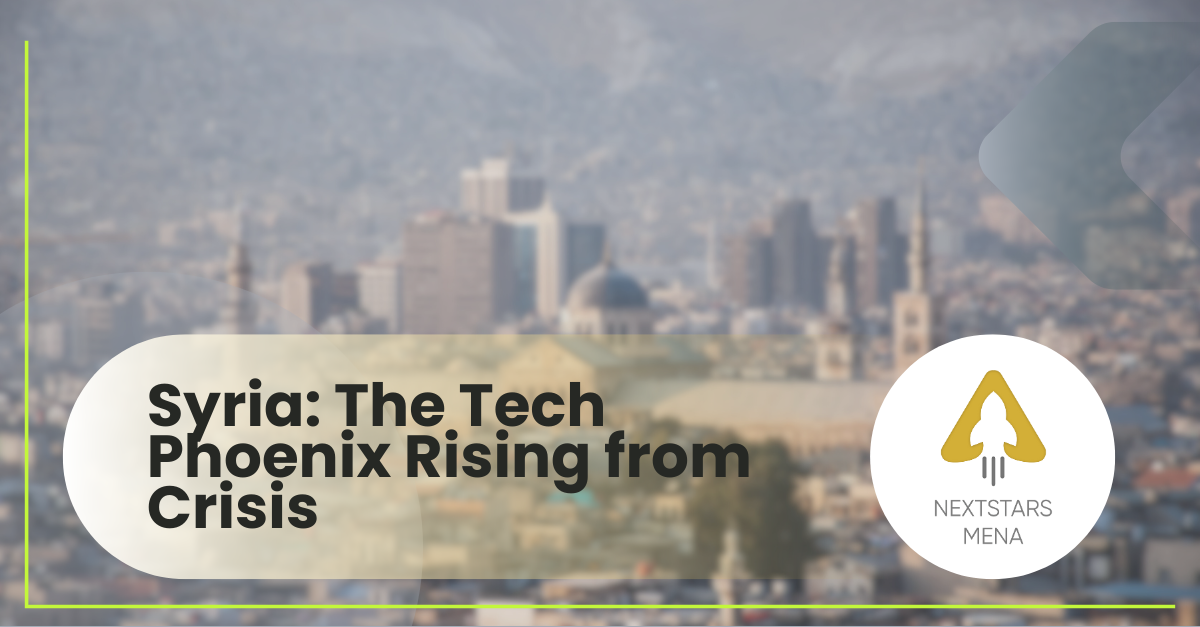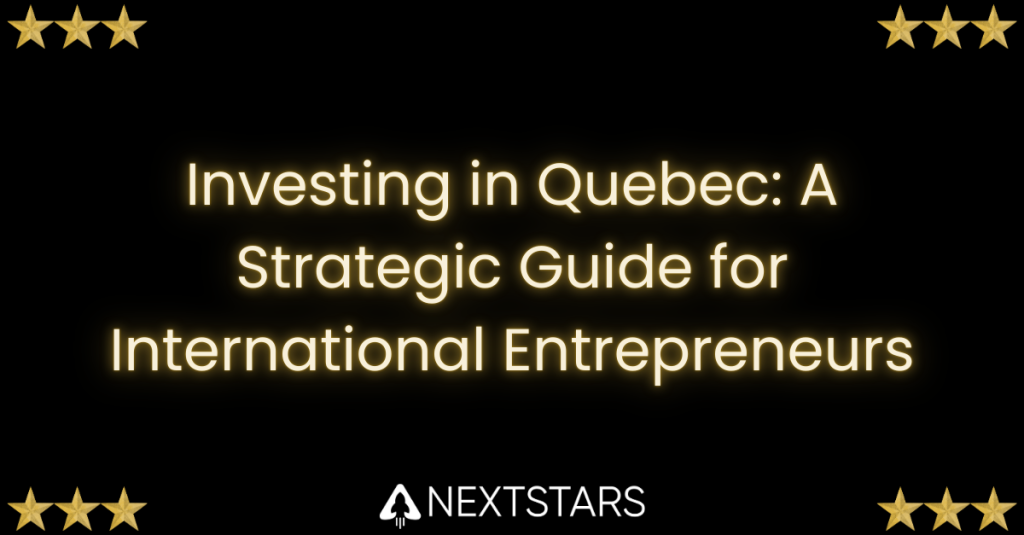Syria’s startup ecosystem represents one of the most remarkable stories of entrepreneurial resilience in modern history. Despite over a decade of conflict, international sanctions, and infrastructure challenges, Syrian entrepreneurs raised an estimated $15-20 million in 2024, primarily through diaspora networks and creative funding mechanisms. With a pre-war population of 22 million (now approximately 18 million in-country), historical position as the Levant’s commercial hub, and a diaspora of 13+ million maintaining strong homeland connections, Syria presents a unique reconstruction opportunity for patient, impact-focused investors. The ecosystem’s emergence—evidenced by success stories like Whatshelp (acquired), Syarah (Saudi expansion), and a thriving freelance economy generating $100+ million annually—demonstrates that innovation persists even in the most challenging environments. Syria’s combination of highly educated human capital, reconstruction needs creating massive market opportunities, and diaspora bridges to global markets positions it as a high-risk, high-impact frontier for entrepreneurs committed to building amid adversity.
A Strategic Position: Syria’s Underlying Advantages
Despite immense challenges, Syria retains fundamental advantages that could power future tech ecosystem development.
Historical Commercial Heritage
Syria’s position as a historical trading crossroads provides deep entrepreneurial DNA:
Pre-war achievements:
- Ranked 5th in MENA for ICT development (2010)
- 26% GDP from private sector pre-conflict
- Strong manufacturing and agricultural base
- Regional hub for pharmaceutical production
Geographic positioning:
- Borders with Turkey, Iraq, Jordan, Lebanon, Israel
- Mediterranean access through Latakia and Tartus ports
- Historical Silk Road trading post
- Natural bridge between Europe, Asia, and Africa
Human Capital Resilience
Despite brain drain, Syria maintains remarkable human capital:
- 96% literacy rate pre-conflict (among MENA’s highest)
- Free university education producing strong STEM graduates
- 5 million+ Syrians completed higher education
- Programming and engineering skills competitive globally
- Multilingual capabilities (Arabic, English, French)
Diaspora Networks
The Syrian diaspora represents unprecedented potential:
- 13+ million Syrians living abroad
- $2+ billion in annual remittances (conservative estimate)
- Successful entrepreneurs in Silicon Valley, Europe, Dubai
- Strong emotional connection to homeland
- Knowledge transfer potential massive
Reconstruction Opportunity
Post-conflict reconstruction creates unique market dynamics:
- $250-400 billion reconstruction needs (UN estimates)
- Every sector requires rebuilding/digitization
- Leapfrog opportunity for modern infrastructure
- Green-field for digital services
- First-mover advantages across industries
This combination of human capital, diaspora connections, and reconstruction needs creates unprecedented opportunity for those willing to navigate complexity.
Current Landscape: Building Amid Adversity
Government Initiatives and Policy Evolution
Despite constraints, Syrian authorities have recognized technology’s importance:
Digital Transformation Initiatives:
- Syrian Computer Society expanding programs
- Higher Institute for Applied Sciences and Technology (HIAST) continuing operations
- IT parks in Damascus and Aleppo (limited but functional)
- Reduced customs on technology imports
- Internet access improving (35% penetration, up from 20%)
Regulatory Developments:
- E-signature law passed (2021)
- Intellectual property protections strengthening
- Startup registration simplified in certain zones
- Foreign ownership restrictions easing selectively
- Banking reforms enabling limited digital payments
Challenges Remain:
- International sanctions limiting partnerships
- Currency instability affecting planning
- Infrastructure gaps constraining growth
- Bureaucracy and corruption concerns
- Limited government funding capacity
Educational Infrastructure
Universities continue producing talent despite challenges:
Active Institutions:
- Damascus University: 200,000+ students, strong engineering faculty
- Aleppo University: Rebuilding with 100,000+ students
- Syrian Virtual University: 30,000+ online students globally
- Arab International University: Private institution adapting
- HIAST: Elite technical education continuing
Emerging Programs:
- Coding bootcamps in Damascus, Aleppo, Latakia
- Online education partnerships
- Diaspora-led training initiatives
- Women-focused tech programs
- Youth entrepreneurship curricula
The Funding Reality: Creative Solutions
Funding Landscape
Syria’s funding ecosystem requires creative approaches given sanctions and risk:
Estimated funding flows (2024):
- $15-20 million total investment (largely undocumented)
- Diaspora funding: 60% of capital
- Local angel investors: 25%
- International NGOs/impact investors: 10%
- Crowdfunding: 5%
Alternative Funding Mechanisms
Diaspora Investment Networks:
- Jusoor: Syrian expat organization supporting 100+ startups
- SIBA (Syrian International Business Association): Connecting diaspora capital
- Khatwa: Women-focused entrepreneurship support
- Individual angels funding remotely
Impact Investment:
- Development finance institutions exploring entry
- Social impact funds supporting job creation
- Reconstruction-focused investment vehicles forming
- Blended finance structures emerging
Crowdfunding and Crypto:
- International crowdfunding platforms used creatively
- Cryptocurrency enabling sanctions workarounds
- Peer-to-peer lending networks
- Revenue-sharing agreements
Sectors Attracting Investment
Freelance/Remote Services (40% of activity):
- Software development outsourcing
- Graphic design and creative services
- Content creation and translation
- Digital marketing services
E-commerce and Logistics (25%):
- Local delivery services thriving
- B2B procurement platforms
- Cross-border trade facilitation
- Payment solutions
EdTech (20%):
- Online learning platforms
- Skill development programs
- University alternatives
- Children’s education apps
HealthTech (10%):
- Telemedicine solutions
- Pharmacy delivery
- Health information systems
- Mental health support platforms
Other (5%):
- AgriTech solutions
- Renewable energy tech
- Reconstruction planning tools
- Cultural preservation platforms
Success Stories: Syrian Resilience
Whatshelp: The Exit That Proved Possibility
Whatshelp, a customer service platform, achieved what many thought impossible—a successful exit from Syria.
The journey:
- Founded in Damascus (2015) during conflict
- Built customer service automation tools
- Reached 10,000+ global customers
- Acquired by Jordianian company (2019)
- Proved Syrian startups could achieve exits
Syarah: Diaspora Success Story
Founded by Syrian expatriates, Syarah became Saudi Arabia’s leading car-trading platform:
Achievements:
- $67 million raised from international VCs
- Operating across Saudi Arabia
- 500+ employees
- Syrian technical team contributing
- Inspiration for Syrian entrepreneurs globally
TeenCash: Fintech Innovation
TeenCash represents local innovation addressing real needs:
The platform:
- Digital wallet for youth
- 50,000+ users despite constraints
- Working within sanctions limitations
- Partnership with local banks
- Enabling e-commerce growth
Freelance Economy Success
Syria’s hidden success story—the freelance economy:
Collective impact:
- 100,000+ Syrians freelancing globally
- $100+ million annual earnings (estimated)
- Top talents earning $50-100/hour
- Supporting entire families
- Building global reputation
Other Notable Initiatives
Mauj.info:
- Local services marketplace
- 100,000+ monthly users
- Connecting service providers
- Operating in 5 cities
Arabica Education:
- Online Arabic learning platform
- 10,000+ international students
- Diaspora-founded, Syria-operated
- Generating hard currency
Vardot:
- Web development agency
- International clients
- 50+ employees
- Open-source contributions
Challenges: Navigating Extraordinary Constraints
Sanctions and International Isolation
Systemic barriers:
- US, EU sanctions blocking most international transactions
- SWIFT exclusion complicating payments
- Technology sanctions limiting software/hardware access
- Investment restrictions deterring foreign capital
- Travel bans isolating entrepreneurs
Workarounds emerging:
- Third-country incorporation
- Cryptocurrency adoption
- Informal payment networks
- Diaspora intermediaries
- Regional partnership structures
Infrastructure Limitations
Critical gaps:
- Electricity: 2-6 hours daily in many areas
- Internet: Slow, expensive, unreliable
- Banking: Limited digital infrastructure
- Transportation: Logistics challenges
- Office space: Limited modern facilities
Adaptive solutions:
- Solar power adoption
- Satellite internet usage
- Mobile-first development
- Remote work models
- Co-working spaces emerging
Brain Drain
Talent exodus:
- 70% of IT graduates left since 2011
- Top talent recruited by regional companies
- Limited senior technical expertise
- Management experience gaps
- Reverse brain drain beginning slowly
Currency and Economic Instability
Financial challenges:
- 95% currency devaluation since 2011
- Multiple exchange rates
- Inflation destroying savings
- Limited access to hard currency
- Pricing challenges for services
Security and Uncertainty
Ongoing concerns:
- Regional instability
- Unpredictable regulations
- Property rights concerns
- Contract enforcement weak
- Long-term planning difficult
The Support Ecosystem: Grassroots Innovation
Incubators and Support Programs
ICT Incubator (Damascus):
- Government-backed but independently run
- 50+ startups supported
- Basic infrastructure and mentorship
- Limited funding available
- Survival-focused programming
Startup Roadshow:
- Touring program reaching 6 cities
- 1,000+ entrepreneurs trained
- Volunteer-led initiative
- Basic business skills focus
- Community building emphasis
Jusoor Entrepreneurship Program:
- Diaspora-led initiative
- 100+ startups supported globally
- Online mentorship and training
- Seed funding occasionally
- Bridge to international markets
Women in Tech Initiatives:
- Syrian Women in Tech network
- 500+ members globally
- Mentorship programs
- Remote work opportunities
- Leadership development
Educational Programs
Syrian Virtual University Innovation Lab:
- Online incubation program
- 200+ students annually
- International partnerships
- Remote internships facilitated
- Certification programs
Private Coding Schools:
- Damascus, Aleppo, Latakia locations
- 3,000+ graduates since 2020
- Job placement assistance
- Freelance training focus
- Women-only cohorts
Diaspora Organizations
SIBA (Syrian International Business Association):
- 1,000+ members globally
- Investment facilitation
- Mentorship programs
- Market intelligence
- Partnership brokering
Khatwa:
- Women entrepreneur focus
- 200+ businesses supported
- Grants and training
- International connections
- Success story amplification
Tech for Peace:
- Tech skills for refugees
- Remote work preparation
- 5,000+ trained
- Job placement support
- Trauma-informed approach
International Support
UN Programs:
- UNDP entrepreneurship initiatives
- UNESCO tech education
- ILO job creation programs
- Limited but important support
International NGOs:
- Mercy Corps startup programs
- IRC economic development
- Save the Children youth programs
- GIZ technical cooperation
Looking Ahead: Reconstruction and Renaissance
The Moment of Opportunity
Syria’s startup ecosystem stands at an inflection point in 2025:
Signs of emergence:
- Sanctions discussions evolving
- Diaspora engagement increasing
- Regional normalization beginning
- Reconstruction planning starting
- Youth embracing entrepreneurship
Fundamental strengths:
- Educated population persisting
- Diaspora networks strengthening
- Market needs massive
- Competition limited
- First-mover advantages available
What Success Looks Like by 2030
Realistic targets:
- $100M+ annual diaspora tech investment
- 1,000+ startups operating
- 50,000 jobs in tech sector
- $500M freelance economy
- 10+ meaningful exits
- 5 unicorn diaspora-founded companies
Qualitative transformation:
- Syria recognized for tech talent
- Diaspora actively investing
- Regional companies opening offices
- Sanctions partially lifted
- Innovation driving reconstruction
Strategic Imperatives
For the ecosystem:
- Diaspora bridge building: Systematic engagement programs
- Infrastructure workarounds: Solar, satellite, creative solutions
- Talent retention: Remote work, competitive compensation
- Sanctions navigation: Legal structures, compliant pathways
- Success amplification: Showcase achievements globally
For entrepreneurs:
- Global from day one: Build for international markets
- Resilience by design: Assume infrastructure failures
- Diaspora partnerships: Leverage external connections
- Social impact focus: Align with reconstruction needs
- Documentation excellence: Build trust through transparency
For investors:
- Patient capital: 10+ year horizons
- Risk mitigation: Portfolio approach, local partnerships
- Impact measurement: Beyond financial returns
- Technical assistance: Provide expertise beyond capital
- Advocacy role: Support sanctions relief
For international community:
- Humanitarian exceptions: Enable tech sector development
- Diaspora facilitation: Support homeland investment
- Education investment: Rebuild human capital
- Infrastructure support: Enable digital economy
- Success recognition: Amplify positive stories
Unique Opportunities
Reconstruction tech:
- Building Information Modeling (BIM)
- Project management platforms
- Supplier networks
- Quality control systems
- Urban planning tools
Diaspora services:
- Remittance platforms
- Investment vehicles
- Property management
- Family connection tools
- Heritage preservation
Social impact:
- Trauma support platforms
- Education access
- Healthcare delivery
- Agricultural recovery
- Cultural preservation
Export services:
- Software development
- Creative services
- Arabic content
- Technical translation
- Remote expertise
The Path Forward
Syria represents the ultimate frontier market—enormous challenges matched by extraordinary opportunity. The ecosystem requires:
Extraordinary resilience: Building despite daily obstacles
Creative solutions: Working around systematic constraints
Diaspora engagement: Bridging inside and outside
Patient capital: Understanding extended timelines
Impact focus: Prioritizing social alongside financial returns
For courageous entrepreneurs and impact investors, Syria offers:
- Minimal competition in most sectors
- Highly educated, underutilized talent
- Massive reconstruction market
- Diaspora support networks
- First-mover advantages everywhere
The entrepreneurs building in Syria today aren’t just creating companies—they’re rebuilding a nation’s economic future. This reconstruction opportunity offers both financial returns and profound social impact.
The key insight: Syria’s tech ecosystem isn’t waiting for perfect conditions—it’s building them. Every startup created, every job generated, every problem solved contributes to the country’s recovery. For those with the vision to see beyond current constraints, Syria represents not just risk, but remarkable possibility.
Syria’s startup ecosystem in 2025 embodies entrepreneurship at its most fundamental—creating value against all odds, building hope through innovation, and proving that human creativity persists even in the darkest circumstances.
Read our previous blog on Qatar here.





